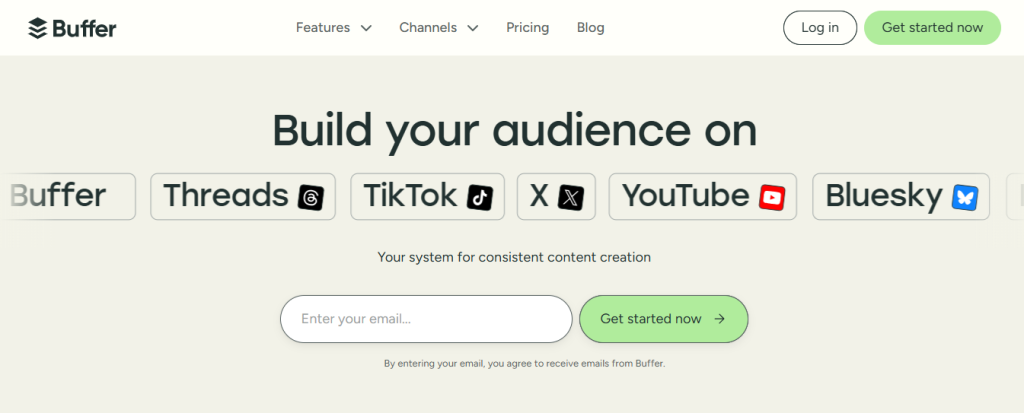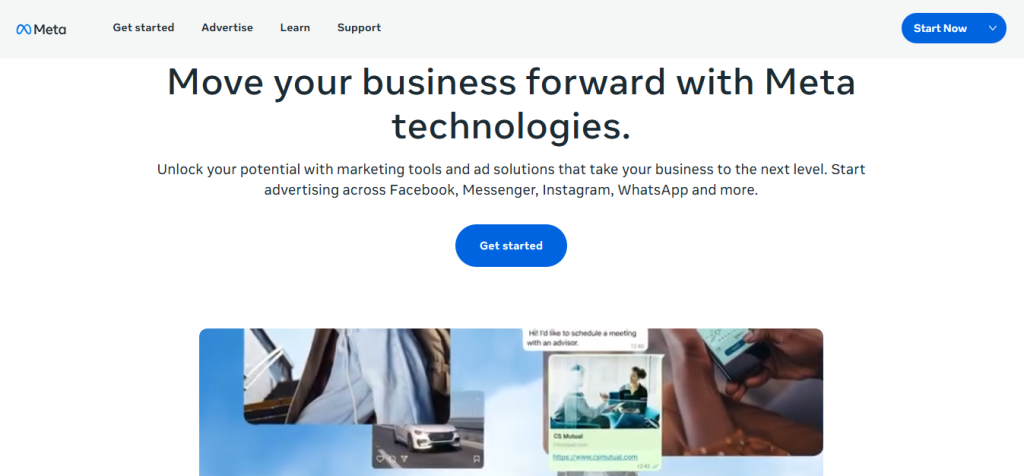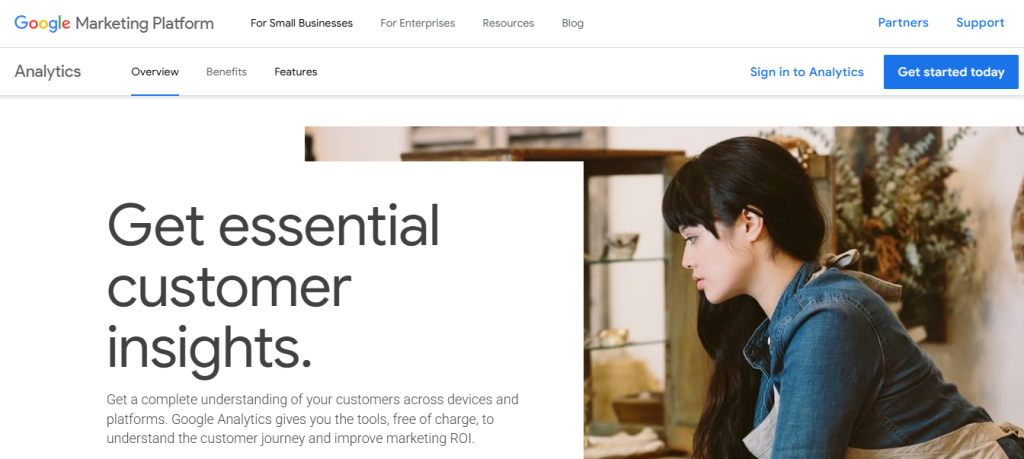With over 5 billion people actively using social media, platforms like Facebook, Instagram, TikTok, and LinkedIn have become powerful marketing tools for businesses of all sizes. For small businesses, especially, social media offers a cost-effective way to reach new audiences, build trust, and drive sales.
But here’s the truth: posting randomly isn’t enough. You need a structured social media management strategy to truly stand out. This guide breaks down exactly why social media management matters for small businesses and how you can implement it effectively in 2025.
What is Social Media Management?
Social media management is more than just posting photos or captions. It involves:
- Creating a content strategy aligned with business goals
- Scheduling posts for optimal engagement
- Responding to comments and messages
- Running paid ads to target specific audiences
- Analyzing performance and adjusting accordingly
In essence, social media management is how small businesses build consistent brand visibility, stay connected to their audience, and drive real-world results online.
Top 5 Reasons Your Small Business Needs Social Media Management
Are you struggling to stay consistent on social media or not seeing results from your posts? Social media management isn’t just about posting regularly, it’s about building a brand, engaging your audience, and driving real business growth.
In this section, we break down the top 5 reasons why small businesses needs social media management, from saving time and improving customer engagement to increasing brand visibility and tracking performance.
Build Brand Awareness and Online Presence
Whether you’re a local bakery or a boutique fashion brand, visibility is everything. A good social media strategy puts your brand in front of potential customers every day.
Here’s what you gain:
- A consistent brand voice across platforms
- Visual identity through design and storytelling
- Organic growth through shares, tags, and hashtags
Boost Customer Engagement and Trust
Social media is a two-way street. When you actively engage your audience, replying to DMs, liking comments, and joining conversations, you build real trust.
Benefits of high engagement:
- Customers feel heard and valued
- Increases chances of repeat business
- Builds community loyalty around your brand
Tip: Use Instagram Stories and polls to humanize your business and get feedback from followers.
Drive Website Traffic and Sales
Social media isn’t just for likes, it’s a direct sales channel when managed properly.
Here’s how:
- Use CTA buttons (“Shop Now,” “Book Today”)
- Post product/service demos and case studies
- Share blog posts and lead magnets to drive traffic to your website
Bonus: Add links in bios and Stories to convert followers into paying customers.
Save Time and Improve Productivity
Running a small business is already time-consuming. Having a dedicated social media manager or tool ensures your marketing runs on autopilot, without sacrificing quality.
Time-saving solutions include:
- Batch content creation
- Scheduling tools like Buffer or Later
- AI tools for captions, analytics, and insights
Stay Ahead of Competitors and Trends
Trends evolve fast: TikTok today, Threads tomorrow. A skilled social media manager keeps you ahead by tracking trends, algorithm changes, and content formats that matter.
Competitive advantages:
- Quick adaptation to platform updates
- Strategic use of hashtags and audio trends
- Staying top-of-mind with fresh, relevant content
Signs You Need a Social Media Manager
Social media may start as something you can manage on your own, but as your business grows, so do the demands. If you’re seeing any of these signs, it’s time to consider outsourcing your social media:
You’re Too Busy to Post Consistently
Running a business means wearing many hats. If social media consistently falls to the bottom of your to-do list, your followers will notice. Inconsistent posting leads to lower engagement, reduced reach, and a stagnant online presence.
Your Engagement is Low or Nonexistent
If you’re posting regularly but getting no likes, comments, or shares, you might be missing the mark with your content or audience. A social media manager can analyze what’s working, create content that resonates, and optimize posting times for maximum engagement.
You’re Not Seeing Any ROI
Are you investing hours or even money in social media with little to no leads or website traffic? Without a data-driven strategy, it’s hard to prove your effort is paying off. A manager can track KPIs, adjust strategy, and help you generate tangible results.
You’re Not Sure What to Post
If you constantly stare at a blank content calendar, it’s a sign you need help. A professional will create a content plan aligned with your business goals, ensuring every post has a purpose.
You’re Struggling to Keep Up With Trends and Platform Changes
Social media is constantly evolving. From new features (like Instagram Reels or LinkedIn newsletters) to algorithm shifts, it’s a full-time job to keep up. A social media manager stays ahead so your business doesn’t fall behind.
How to Choose the Right Social Media Management Service
Not all social media managers are created equal. Here’s what to look for when hiring someone to manage your online presence:
Proven Track Record
Ask for case studies, portfolio samples, or testimonials. A credible manager should be able to show real growth in followers, engagement, and conversions from past clients, especially in your industry.
Industry Experience
Social strategies vary depending on the niche. A restaurant and a SaaS startup won’t use the same tone or platforms. Look for someone who understands your industry, target audience, and goals.
Strategy Over Just Posting
Beware of managers who only “post content.” You need a strategist, someone who builds a plan, analyzes performance, tests what works, and adjusts accordingly.
Clear Communication and Reporting
You should receive regular updates and performance reports that break down metrics in plain language. Look for monthly reporting, strategy calls, or dashboards that show progress.
Platform Expertise
Make sure the manager is well-versed in the platforms that matter to your business. Whether that’s Instagram, TikTok, LinkedIn, or Pinterest, they should know the best practices and tools for each.
Paid Ads Management (Optional)
If you plan to run Facebook or Instagram ads, make sure your manager has ad experience or works with a team that does. Organic reach only goes so far, ads can accelerate growth if done right.
Top Tools for Effective Social Media Management
Managing social media as a small business doesn’t have to be overwhelming, especially when you have the right tools in your toolkit. Here are some of the top platforms that can help streamline your workflow, elevate your brand, and keep your content strategy consistent.
Canva
Canva makes it easy for small businesses to create quality graphics, even without graphic design experience. From Instagram posts and Reels covers to Facebook banners and promotional flyers, Canva offers thousands of customizable templates and drag-and-drop features. You can even save brand colors and fonts for consistency.
- Best for: Social media graphics, infographics, carousels, stories
- Bonus: Canva Pro allows you to schedule posts directly to platforms like Instagram and Facebook.

Buffer
Buffer is a beginner-friendly tool that helps you plan, schedule, and publish content across multiple platforms like Facebook, Instagram, X (formerly Twitter), and LinkedIn. It allows you to map out your content calendar in advance, saving time and ensuring you stay consistent.
- Best for: Post scheduling, content planning, publishing automation
- Bonus: You can analyze the performance of your posts and adjust your strategy accordingly.

Meta Business Suite
Formerly known as Facebook Business Manager, Meta Business Suite gives you full control over your Facebook and Instagram accounts from one dashboard. It lets you schedule posts, run ads, reply to messages, and view performance insights, all in one place.
- Best for: Small businesses focused on Meta platforms
- Bonus: Free and integrated with both Facebook and Instagram natively.

ChatGPT or Jasper
AI tools like ChatGPT and Jasper can supercharge your content creation by helping you write catchy captions, brainstorm content ideas, or generate full-length posts. This is especially helpful when you’re short on time or struggling with creative blocks.
- Best for: Caption writing, blog-to-social content, idea generation
- Bonus: Can be trained on your brand tone and voice for better consistency.

Google Analytics & Sprout Social
Tracking what works and what doesn’t is essential. Google Analytics helps you measure how social traffic behaves on your website. Are they bouncing? Converting? Spending time? Meanwhile, Sprout Social provides in-depth social media analytics, post-level engagement, and audience insights.
- Best for: Measuring ROI, adjusting strategy, identifying trends
- Bonus: Sprout Social also includes publishing and engagement features.

These tools streamline your process and provide data-driven insights to boost ROI.
Beginner Strategy Tips for Small Business Social Media
If you’re not ready to hire yet, here’s how to start building a simple, effective social media strategy from the ground up:
Define Your Goals
Start by asking: What do you want social media to do for your business? Common goals include increasing brand awareness, driving traffic to your website, generating leads, or boosting sales.
Know Your Audience
Understand who your ideal customer is. What are their interests, pain points, and online behaviors? Use this insight to create content that speaks directly to them.
Choose the Right Platforms
You don’t need to be everywhere. Choose 1–2 platforms where your audience already spends time. For example:
- B2B? Focus on LinkedIn.
- Fashion or beauty? Instagram and TikTok.
- Local services? Facebook and Instagram.
Create a Simple Content Calendar
Plan your posts weekly or monthly using themes (e.g., behind-the-scenes Monday, product highlight Wednesday, tip Friday). This helps you stay consistent and reduces daily content stress.
Use Tools to Save Time
Free tools like Canva (for graphics) and Buffer or Later (for scheduling) can help streamline your content creation and publishing process.
Monitor Performance
Track basic metrics like reach, engagement, and link clicks. See what content performs best, and do more of it.
Avoid These Common Mistakes
Even well-intentioned social media efforts can flop if you’re not careful. Avoid these common errors:
Posting Without a Strategy
Random posts with no clear message or objective will confuse your audience. Always post with purpose, whether it’s to educate, entertain, inspire, or sell.
Over-Promoting Your Business
Nobody wants to follow a constant sales pitch. The 80/20 rule works well: 80% of your content should provide value, while 20% can be promotional.
Ignoring Comments and Messages
Social media is two-way communication. Failing to respond quickly can damage your reputation and cost you leads. Prioritize engagement, not just broadcasting.
Using Irrelevant Hashtags
Hashtags help with discovery, but only if they’re relevant. Don’t spam trending tags that have nothing to do with your post. Use a mix of broad and niche-specific hashtags.
Not Optimizing for Mobile
Most users scroll on their phones. Make sure your visuals are mobile-friendly, your links are clickable, and your content is easy to digest.
Failing to Analyze Results
Posting blindly without tracking performance is like driving with your eyes closed. Review your analytics monthly to see what’s working and refine your strategy.
FAQs: Social Media Management for Small Businesses
How often should I post?
3–5 times a week is ideal for most platforms, depending on your audience.
Can I manage social media myself?
You can, but consistency and strategy are key. If you can’t commit, it’s worth hiring help.
Do I need to be on every platform?
No. Focus on platforms where your audience is active, quality over quantity.
Conclusion
In 2025, social media is no longer optional for small businesses, it’s a vital part of your marketing toolkit. From increasing visibility to building loyal communities, driving traffic, and staying ahead of trends, the benefits are endless.
Whether you’re launching a startup or running a local business, investing in professional social media management can take your brand from unknown to unforgettable.
